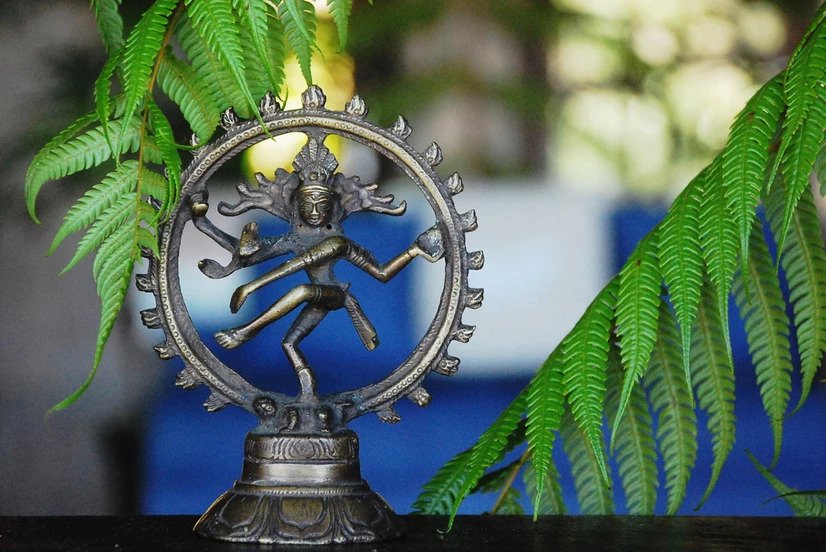The Yamas & Niyamas
The ancient Yamas and Niyamas are the ethical principles established by the original enlightened yogis, to prevent the yogic powers that are activated due to meditative practice, from being used illegitimately. These disciplines comprise the threshold vows that will become the foundation of the Dharma of a Sat Yogi. The practice of ethical living that the Dharma entails is the best help one can have to structure and sustain a life of inner freedom and abidance in blissful God-consciousness.
The Yamas and Niyamas are most definitely not about putting oneself in a straightjacket of self-denial or a superego prohibition of enjoyment.
On the contrary, this moral superstructure confers indispensable support to that which is highest and most beautiful and pure in us to fully develop, so that Supreme Self-realization can be eternally awakened, and the degrading power of Maya (egoic illusions, arrogance, greed, lust, hatred, fear, weakness, self-sabotage, and the lower death drive) can be finally overcome.
They express God’s everlasting promise to us of salvation, if we will only refrain from sin and vice, and focus our will on becoming worthy of knowing Oneness with the Absolute.
The Yamas are five principles of self-containment:
Ahimsa – Non Violence
We hurt ourselves (and of course others) whenever we allow emotional outbursts—or even entertain thoughts—expressing hatred, anger, or ill will. Violence toward oneself is equally disallowed by an ethical consciousness. Ahimsa is an inherent part of our natural state. We are beings of divine love and compassionate fellowship. When we recognize our Being as pure Presence and enter into the silence of the Heart, we become Love. There is no violence in our authentic essence.
Ahimsa is the establishment of one’s character in complete nonviolence in thought, word, and deed, in relation to all beings, including the self. When ahimsa becomes the way of life for humanity at large, through the power of our morphogenetic field, there will be world peace.
Satya – Truth
The ego mind is not capable of being truthful because it is split between conscious and unconscious sectors and the conscious “I” does not know the whole truth. A great deal is repressed, denied, distorted, or dismissed. We do not know the truth of cosmology, world history, geopolitics, the nature and lies of the ego, or the Truth of the Self. To live in Satya means we are dedicated to inner reflection, interpretation of our dreams and symptoms of suffering, and removal of projections. We become transparent, open, honest, and humble, knowing how much we do not know. To attain Satya in a complete way requires transcendence of the ego and abidance as pure Presence.
Asteya – Non-stealing
Whether it is someone else’s belongings, ideas, or time, we must respect the property of others and not steal that which is not rightfully ours to take or use. Asteya requires us to accept our existential situation and to be content with what we have—and not entertain a false sense of lack. With acceptance comes peace and trustworthiness. Asteya confers upon us the capacity to be intellectually honest and disinterested in the flux of phenomenal conditions. It is the invitation to accept the perfection of what is and develop our faith in the goodness and the fullness of our Supreme Beingness.
Brahmacharya
Control and sublimation of sexual impulses; non-objectification of others; abidance in Brahman.
Brahmacharya is usually defined as a vow not to engage in any inappropriate sexual behavior. This includes not seeing other people as objects of lust, body parts to grope, or rescuers from loneliness. We must learn to see all as sacred avatars of the One Formless Self (Brahman). Brahmacharya thus means to abide in and as Brahman. In that shift of locus, there is spontaneously a loving interbeing with everyone. No sense of lack or neediness remains. Thus, one is never agitated or infatuated, one is not driven by desire. One can never be seduced, and one can never be defiled. Brahmacharya confers the freedom to relate to others with authentic empathy and empowerment, harmoniously, with genuine intimacy and without awkwardness or fear of the other’s desire for sexual contact with one’s bodily form. Brahmacharya transmits the power of purity, which creates a protective aura, bestows nobility of spirit, delivers the courage to set boundaries, and grants freedom from the self-defilements of desire and fear, that inevitably bring consequences of remorse, shame, and guilt. In the final analysis, Brahmacharya is the golden key to a life of blissful liberation.
Aparigraha – Non-covetousness
All that we have is divinely given. Our good karma determines our income. Recognizing this, we can easily eliminate any bitter feelings of lack or envy. We are freed from such impulses as unhealthy competitiveness, comparing ourselves with others, and engaging in one-upmanship, one-downmanship, oppositionalism, prejudice, or snobbery. Aparigraha enables us to be truly happy for the success of others. It bestows the power to discover and develop our own talents, to find our own strength, our inner divine beauty, and the grace that alone can bring fulfillment. Aparigraha grants the power to turn our attention to the Self and attain true greatness. Aparigraha begets generosity of spirit and offers the priceless joy of sharing and nurturing.








Shaucha – Purity and Hygiene
Shaucha mandates purity of attitude, thought, speech, behavior, personal hygiene, clothing, and diet. Shaucha entails eating only foods that are spiritually appropriate, nutritious as well as ethically obtained, that also leave us with a sweet breath and body fragrance. Shaucha means taking a shower before joining a group meditation or class, if one is sweaty or dirty from work. It means wearing clean and appropriate attire, speaking in an elegant and reverent manner, without dropping into vulgar language. It means always behaving in a way that reveals a cultured and refined consciousness, and never acting in a way that provokes disgust. It means treating the body as a sacred manifestation of God, refraining from abusing the organism, and treating it as the medium of Spirit. Shaucha confers the joy of immaculate living and impeccable savoir faire.
Santosha – Contentment
Santosha is the beautiful gift of living in the serenity of acceptance. There is no stress, no worry, no remorse, and no nostalgia, no anxiety, and no sorrow. All is perfect. And that recognition is paradoxically the moment when consciousness blossoms into divine fullness. Contentment is happiness.
Tapas – spiritual practice
Tapas is the act of fanning the inner Flame until the Fire of Yoga incinerates the ego and whatever else might separate consciousness from its Source. Determined practice of inner silence and Presence brings Liberation. Paradigms shift, conditioned ways of thinking and acting fall away. The ego dissolves and the Real Self emerges. Tapas is the portal to Bliss.
Swadhyaya – Spiritual Study
In the early phases of the transcendental journey, we tend to fall back intermittently into old ways of thinking, forgetting momentarily our purpose. Swadhyaya, spiritual study, offers a daily reminder of why we have undertaken this life of contemplation, and reinvigorates our yearning for freedom and peace. The medicine of reading the words of enlightened sages is a powerful antidote to Maya. Even if it is just a phrase full of wisdom, it can reignite our Light of Spirit and bring us back to the One. Swadhyaya does not mean we have to learn the intricacies of theological discourse. We are not concerned with the concepts, philosophies, and metaphysics, but with the sublime sense of joy expressed by a liberated being. The beauty of divine intelligence inspires us to go beyond words and realize the Truth that is our essence.
Ishvara Pranidhana – offering our life to God
Ishvara is a Sanskrit word for God, the Lord of Creation. It is not the same as Brahman. The Lord mandates moral heroism, readiness for the ultimate sacrifice. Pranidhana means surrender. It means to live in service of God, not of the ego. If our surrender is genuine and complete, life will be beautiful. A life dedicated to attainment of the Infinite, to ceaseless service, to abiding in blissful Presence, is one of incomparable delight. Surrender to God means being filled with God’s supreme intelligence and infinite love and the ultimate use of existence for the revelation of God, by serving as the Lord’s Avatar. Who would not want such a blessed life? This is attainable here and now.
There need be no struggle. Simply recognize the ego as the cyborg that it is. And take control. Power comes from surrender.
Yamas and Niyamas for a New Era
The Sat Yamas and Niyamas
Shunyamurti has downloaded from Source a new set of advanced Yamas and Niyamas for committed Sat Yogis. These are more directly relevant for the highest levels of spiritual attainment. The Sat Yoga Wisdom School is divided into two levels. The first level, the Trivium, still employs the old Yamas and Niyamas. But when a yogi enters the advanced level, the Quadrivium, then the Sat Yamas and Niyamas must be internalized.


